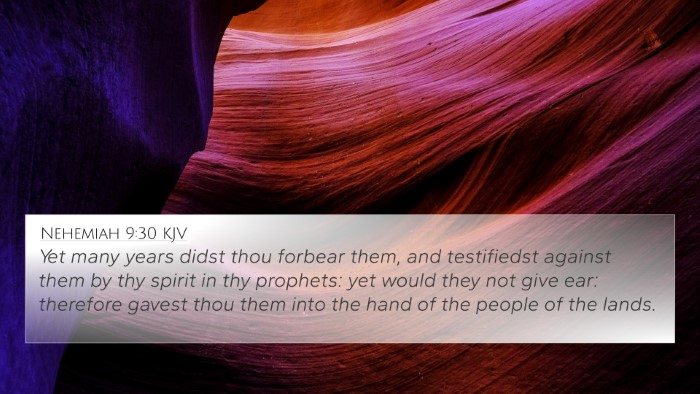Understanding Genesis 6:3
Genesis 6:3 states, "And the LORD said, My spirit shall not always strive with man, for that he also is flesh: yet his days shall be an hundred and twenty years."
This verse encapsulates a critical moment during the early days of human existence and God's response to humanity's sinful nature. Let's explore its meanings as interpreted by various public domain commentaries.
Commentary Insights
Matthew Henry's Commentary
Matthew Henry emphasizes that this pronouncement reflects God's displeasure with humanity's increasing wickedness. He notes that the term "strive" indicates God's Spirit working to bring about repentance and reconciliation. However, the persistent rebellion of mankind leads to divine judgment.
Henry suggests that God's declaration of limiting man's lifespan to "an hundred and twenty years" signifies not only a physical limitation but also a divine warning. It reflects God's mercy in granting time for repentance before the impending flood.
Albert Barnes' Notes
Albert Barnes points out that God's Spirit striving with man depicts a relational aspect, emphasizing the grace extended to humanity. This striving indicates God's attempt to evoke change and holiness among men, which is met with resistance and neglect.
Barnes interprets the limitation of lifespan as a direct response to humanity's sinfulness. It is both a punishment and a mercy—punitive in nature as it limits the time for sin, yet merciful in allowing a window for salvation before judgment comes.
Adam Clarke's Commentary
Adam Clarke offers insights into the significance of "flesh" in this context, suggesting it reflects human frailty and susceptibility to sin. Clarke further expounds that God's Spirit engaging with mankind signifies an ongoing divine effort to draw humanity towards righteousness.
Like Henry and Barnes, Clarke sees the "hundred and twenty years" as a considerable period for humans to seek God amidst their corruption, thereby indicating God's desire for repentance rather than immediate destructive judgment.
Cross-References for Genesis 6:3
- Genesis 3:19 - Reflects human mortality and the consequences of sin.
- Genesis 5:24 - Highlights Enoch’s unique relationship with God, contrasting with humanity's general state.
- Romans 8:9 - Discusses the Spirit living within believers, extending the theme of divine engagement.
- 1 Peter 3:20 - References the long suffering of God as He waited during Noah's time.
- John 1:5 - Illustrates the light of God confronting darkness, akin to God's striving with men.
- Hebrews 9:27 - Addresses the inevitability of death, paralleling the limitation placed in Genesis.
- 2 Peter 3:9 - Emphasizes God's patience and desire for all to come to repentance.
Thematic Connections
Genesis 6:3 serves as a thematic link within a broader Biblical narrative concerning divine mercy, human sinfulness, and the limit of grace given to mankind. By connecting this verse with others, we can understand the continuity of God's character throughout the scripture.
Cross-referencing Genesis 6:3 with other verses allows for a deeper understanding of major Biblical themes such as:
- Divine Judgment: Understanding how God's judgment is portrayed across both the Old and New Testaments.
- Human Nature: Analyzing the inherent sinfulness and weaknesses of humanity as seen through scripture.
- Repentance and Grace: Exploring the recurring themes of grace and calls for repentance throughout the Bible.
- The Role of the Holy Spirit: Investigating how the presence and work of the Holy Spirit is revealed in both the Old and New Testaments.
Applying Cross-Referencing Tools
To grasp the nuances of Genesis 6:3 deeper, utilizing tools for Bible cross-referencing can enhance personal study.
Some effective methods include:
- Using a Bible concordance to find related themes and verses.
- Engaging a Bible cross-reference guide to trace different interpretations.
- Employing a cross-reference Bible study to gather collective insights from biblical passages.
- Identifying how Old Testament narratives inform New Testament teachings.
Conclusion
Genesis 6:3 provides a profound insight into God's relationship with humanity. This verse illustrates the balance between divine mercy and justice, highlighted by the limitation placed on human life and the ongoing efforts of God's Spirit to engage with mankind. Through cross-referencing and thematic analysis, one can appreciate its significance in the grand narrative of the Bible, uncovering layers of meaning that enrich personal faith and understanding.
















